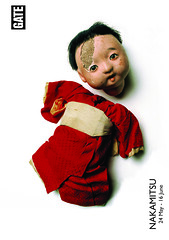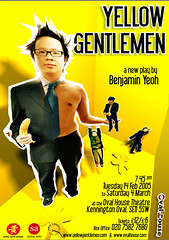Humbleness
Reading about Eliot Spitzer, New York Governor, being caught using a high class escort ring leads me to thoughts about humbleness that I have been having over the years.
The FT writes “Spitzer was educated at Horace Mann preparatory school in Manhattan, at Princeton University and at Harvard Law School, which encouraged arrogance and self-righteousness. These qualities led him to become a client of a vice ring although he had prosecuted such outfits before and knew the risks involved. Whether or not he committed a crime, he acted so recklessly that it beggars belief.”
I was educated at Westminster school, Cambridge University and Harvard University.
Do these places encourage arrogance and self-righteous? Or was it his own personal and family history (rich background) which led him down that path?
I would say first and foremost, with a bit of luck, the places I was educated at encouraged free and independent thinking and pitted that thinking against very high critical and intellectual standards. I wasn’t rich.
The other areas I ply my trade, as long term readers would know, are in theatre/arts, science (particularly medicine/pharmaceuticals) and the stock market.
I believe the true observer and participant in the markets would learn humbleness. No matter how good you are, you do not know if next day or next year you will have assessed the market wrong. Even the best, such as Victor Neiderhoffer in the trading arena have come unstuck and Warren Buffet will admit his investing mistakes too (read his shareholder letters). More often than not, the market “knows” best and if it does not then it can remain “irrational for longer than you can remain liquid” ie you will run out of money first before the market does.
That is part of the thrill and challenge for traders and stock market lovers.
I was good at Maths when I was growing up. I could probably say I was very good. However, I was good enough to know I was not a genius.
I liken it to being able to climb a hill in order to see that there are other mountains further ahead. There are lots of people who don’t climb that hill at all and I guess perhaps a hill or a mountain can look the same from further away.
There has been a lot of talk about critics in the arts. I think this has increased since the advent of blogs have given voices to more art goers.
From my point of view, I see a fair amount of modern art in all its forms and on many occasions, I don’t understand it. Some times, I don’t understand it but it still moves me – this happens to me in dance and some times I’m left blank.
Is this the artists problem or mine? That is probably the wrong question posed in the wrong binary form.
However, for most art I believe there is a compact between artist and audience/viewer/reader. Theatre is not complete without an audience. Not to the same extreme but towards the same effect: art needs a viewer, literature needs a reader, music needs a listener, architecture needs inhabitants; art forms have died when its audiences have been lost like gods die when believers fade.
Both the artist and the audience have a problem if they can’t communicate. Some times both will want to fix this problem, some times neither.
As a viewer of art, I like to take the humble approach first and assume that if I don’t understand some thing, it is a problem first with me and not with the art.
Some times I can solve this, I can find out more about where the piece is coming from, some times I can not and some times for various reasons, I will not – probably to my loss. The piece may well move others.
Science has an inbuilt mechanism in its process to rely on evidence, testing and re-testing that can somewhat diminish too much individual arrogance.
However, over the years, I can’t help thinking that the world would be a more peaceful, perhaps more productive place, if and when, we come up against something we don’t understand, we first ask ourselves what it is about ourselves which means we can’t understand it, and then try to understand it on its terms from its own place before we dismiss it as not our problem but the X’s problem. [Think theatre criticism, but also religion, Middle East, conflict etc.] Many of our greatest mountains pay respect to large matters – Stephen Hawking to the Universe, Warren Buffett to the markets, Monet to nature.
Some days, I think it would have been amazing to be a mountain, but when you are on the top of the world perhaps it is difficult to put matters in perspective.
Eliot Spitzer couldn’t. Why would I be better?

